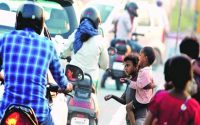Supreme Court: Motive not crucial if there is direct evidence
Source:- indiatimes.com
CHENNAI: Motive, in a crime, need not be established when there is direct evidence, said the Supreme Court setting aside an order of the Madras high court to acquit five accused in an attempt to murder case. In the 1999 case, 13 out of 19 witnesses turned hostile, prompting a bench of Justice Rohinton Fali Nariman and Justice Mohan M Shantanagoudar to say in a case where witnesses turn hostile, “it could cut both ways”.
To put it simply, it could ruin the prosecution’s case, or support the evidence. The court also rapped the high court’s verdict saying it had “…crossed the line of non-interference in acquittals…”
According to the prosecution, Rajagopal of Tirunelveli was attacked by five people near a bus stand at 2.30pm on December 6,1999.
Both of his legs were later amputated because of the injuries. Stating in detail the injuries inflicted by each person, Rajagopal identified the accused. Though medical evidence buttressed his evidence, 13 witnesses including his sister turned hostile. So a doubt loomed large over the motive, arrest, confession and recovery of weapon.
But, considering the overall evidence, a fast track court in Tirunelveli sentenced all accused to seven years RI for the offences of attempt to murder, rioting and unlawful assembly under the IPC. The accused then appealed in the Madras high court, which set aside the trial court’s verdict.
According to the high court, the FIR was registered after a delay of around eight hours, the page of police diary relating to the incident was torn, Rajagopal did not say the concerned police official recorded the case, and no one including the people of the locality besides the taxi driver who took the injured to hospital was examined. So the accused had to be acquitted, it said.
Rajagopal then moved the top court. The bench said, “…the fact that stares one in the face is that the high court did not deal with the direct evidence of Rajagopal.”
His testimony had remained unshaken in cross-examination, said the bench adding, the high court did not doubt Rajagopal’s teatimony. “There cannot be any doubt regarding the direct evidence from Rajagopal…from the weapons used, from what was shouted (by the accused) and from nature of the injuries,it is clear thae common obeject of the unlawful assembly was murder,”the bench said.



